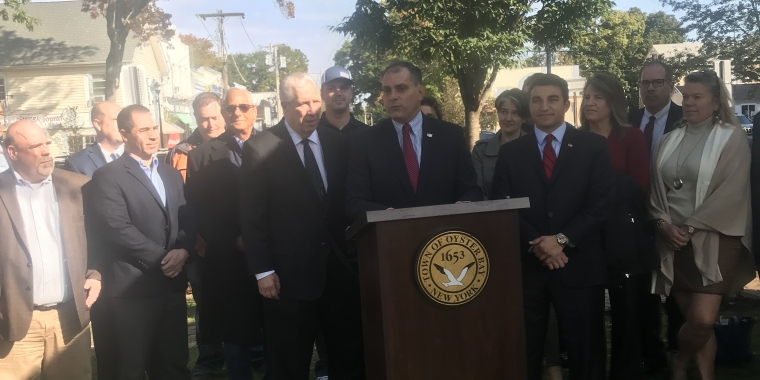
SENATE PASSES LEGISLATION TO MAKE KENDRA’S LAW PERMANENT
March 29, 2018

Senator Carl L. Marcellino today announced that the NY Senate passed a bill that would strengthen Kendra’s Law and make its provisions permanent. The bill enhances public safety, improves the quality and effectiveness of care provided to the mentally ill, and prevents Kendra’s Law from expiring on June 30, 2017.
Senator Marcellino said, “Strengthening Kendra’s Law serves two purposes: it makes our communities safer and it helps to vastly improve the quality of life for people coping with severe mental illness. The steps we’ve taken today are important ones for public safety and mental wellness, and I hope you’ll join me in urging the Assembly to follow the Senate’s lead on this vital measure.”
Kendra’s Law was first enacted in 1999 after a tragic incident where 32-year-old Kendra Webdale was pushed in front of a subway train by a man with untreated schizophrenia who was roaming New York City streets. The law allows for court-ordered assisted outpatient treatment (AOT) for individuals who won’t voluntarily seek help but are a safety threat.
Since Kendra’s Law was enacted, studies have found that patients given mandatory outpatient treatment and who were more violent to begin with were four times less likely than members of a control group to perpetrate serious violence after undergoing AOT. The studies also found less frequent psychiatric hospitalizations, shorter lengths of hospitalizations, reductions in the likelihood of arrest, higher social functioning, less stigma, and no increase in perceived coercion.
The law is designed to prevent serious harm to the mentally ill person or others, but gaps exist in the current system that must be fixed to make it more effective. The measure would not only make Kendra’s Law permanent, but includes several provisions to enhance the current system of AOT including: requiring follow-up on those who move during the AOT period to ensure that they receive their treatment; requiring an evaluation for AOT when mental health patients are released from inpatient treatment or incarceration so that people needing services do not fall through the cracks; requiring counties to notify the Office of Mental Health (OMH) when an assisted outpatient is missing and thereby unavailable for an evaluation as to whether he or she continues to meet AOT criteria; and requiring the Commissioner of OMH to develop an educational pamphlet on the AOT process of petitioning so that family members have information on how to file a report.
The bill has been sent to the Assembly
Share this Article or Press Release
Newsroom
Go to Newsroom


